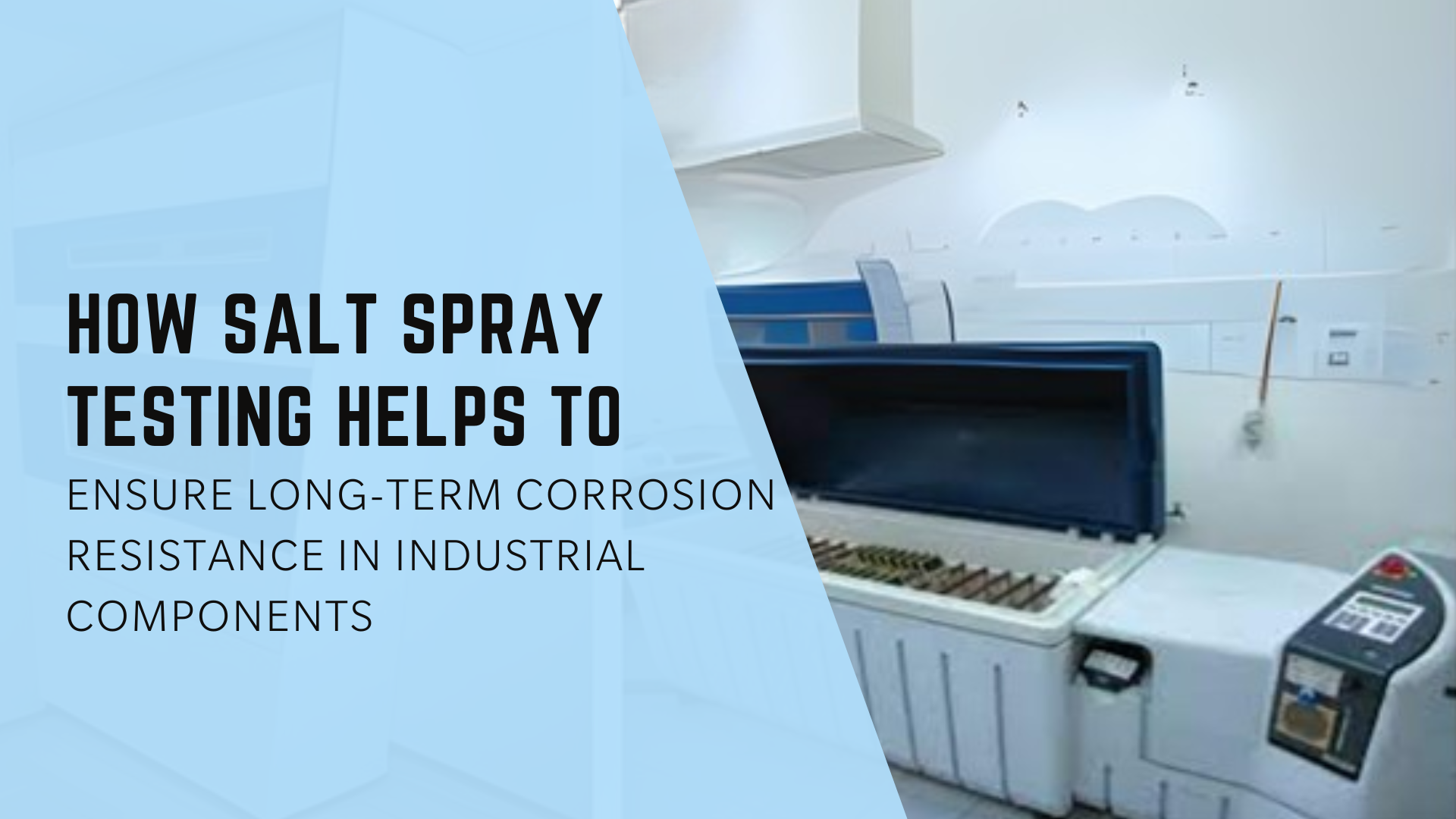
Industrial products are usually used in the harshest environments – environments subject to moisture, chemicals, or salt-laden air. To avoid wear and tear and ensure longevity and functionality, it must be determined that these products possess corrosion-resistant characteristics. Salt spray testing is one of the most commonly used and accepted corrosion resistance tests
In this blog, we will outline how salt spray testing works, why it's important for different industries, and how it provides confidence over the long term that products will perform as designed.
The salt spray test is also known as the salt fog test. It's an accepted, standardized corrosion test to determine how well a coating or material can be resistant to corrosive conditions. To perform a salt spray test, a metal piece is placed in the salt spray chamber. The test chamber is a controlled environment where salt-laden mist will be applied to the specimen to simulate environmental attack for years, all in a short timeframe..
The accelerated salt spray test helps manufacturers and industry experts determine the integrity of protective coatings or surface finishes and materials in general.
Corrosion leads to early product failure, costly repairs, or worse: safety hazards. Industries such as automotive, aerospace, marine, and manufacturing rely on corrosion testing services to confirm that their components can meet regulatory requirements and longevity expectations. When corrosion resistance testing is performed early in the product design phase, companies can:
A salt spray test chamber creates a highly corrosive environment by spraying a fine mist of salt solution, usually 5% sodium chloride (NaCl), into a controlled-temperature setting (generally 35°C). Test samples are placed in the chamber and exposed for defined evaluation times - anywhere from 24 hrs to over 1,000 hrs, depending on the standards employed. After the test is complete, the samples are reviewed to see if any corrosion, including rust, blistering, or degradation of a coating, has developed.
Salt spray testing is primarily used for coated metals, galvanized steel, aluminum, and plated components used in industrial, marine, and automotive applications.
It varies based on the test standard, but common durations are 48, 96, 240, or 1,000+ hours to simulate long-term exposure.
Long-lasting corrosion protection is more than just the right materials; making sure the material's performance is correct as well. Roots Metrology offers high-quality salt spray testing and full corrosion testing services, using certified salt spray test chambers.
As an established name in precision testing and analysis, we assist manufacturers in complying with international standard counts, improving performance reliability, and reducing expensive failures. If you're looking for reliable corrosion resistance testing on your components, then Roots Metrology provides the accuracy, compliance, and confidence every time.